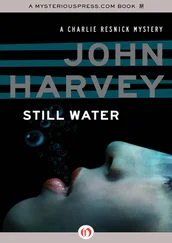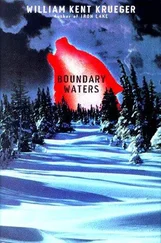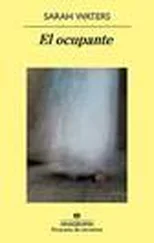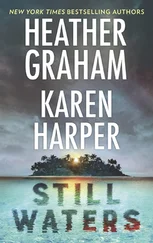Sarah Waters - Fingersmith
Здесь есть возможность читать онлайн «Sarah Waters - Fingersmith» весь текст электронной книги совершенно бесплатно (целиком полную версию без сокращений). В некоторых случаях можно слушать аудио, скачать через торрент в формате fb2 и присутствует краткое содержание. Жанр: Исторический детектив, на английском языке. Описание произведения, (предисловие) а так же отзывы посетителей доступны на портале библиотеки ЛибКат.
- Название:Fingersmith
- Автор:
- Жанр:
- Год:неизвестен
- ISBN:нет данных
- Рейтинг книги:3 / 5. Голосов: 1
-
Избранное:Добавить в избранное
- Отзывы:
-
Ваша оценка:
- 60
- 1
- 2
- 3
- 4
- 5
Fingersmith: краткое содержание, описание и аннотация
Предлагаем к чтению аннотацию, описание, краткое содержание или предисловие (зависит от того, что написал сам автор книги «Fingersmith»). Если вы не нашли необходимую информацию о книге — напишите в комментариях, мы постараемся отыскать её.
Fingersmith — читать онлайн бесплатно полную книгу (весь текст) целиком
Ниже представлен текст книги, разбитый по страницам. Система сохранения места последней прочитанной страницы, позволяет с удобством читать онлайн бесплатно книгу «Fingersmith», без необходимости каждый раз заново искать на чём Вы остановились. Поставьте закладку, и сможете в любой момент перейти на страницу, на которой закончили чтение.
Интервал:
Закладка:
Gentleman had been alive and drunk and dancing with Dainty and John, downstairs. I had stood at the window, put my thumb to the glass, made the frost turn to dirty water.
Mrs Sucksby had come and stroked my hair ... I went to the window, now. I went, and looked, and almost swooned away, for the streets of the Borough, that had been dark and empty then, were bright, and filled with people— so many people!— people standing in the road, stopping the traffic; and besides them, people on walls, on sills, clinging to posts and trees and chimneys. Some were holding children up, some were craning for a better view. Most had their hands across their eyes, to keep the sun off.
All had their faces turned one way.
They were looking at the roof of the gate of the gaol. The scaffold was up,'the rope already on it. A man was walking about, examining the drop.
I saw him do it, feeling almost calm, feeling almost sick. I remembered what Mrs Sucksby had asked, with her last words to me: that I should watch her. I had said I would. I had thought I should bear it. It seemed such a little thing to bear, compared with what she must suffer . . . Now the man had taken the rope in his hands and was testing the length of it. The people in the crowd stretched their necks further, so they might see. I began to be afraid. Still I thought, however, that I would watch, to the end.
Still I said to myself, 'I will. I will. She did it for my own mother; I'll do it for her.
What else can I do for her now, except this?'
But I said it; and then came the slow, steady striking of ten o'clock. The man at the rope stood down, the door to the prison steps was thrown open, the chaplain showed himself upon the roof, and then the first of the keepers.— I couldn't do it. I put my back to the window and covered my face with my hands.
I knew what followed, then, from the sounds that rose up from the streets. The people had fallen silent at the striking of the clock, the coming of the chaplain; now I heard them all start up with hisses and with hoots— that, I knew, was for the hangman. I heard the very spreading of the sound about the crowd, like oil on water. When the hoots grew louder, I knew the hangman had made some sign or bow. Then, in an instant, the sound turned again, moved
faster, like a shiver, like a thrill, through the streets: the cry was sent out: 'Hats off!', 336
and was mixed with bursts of dreadful laughter. Mrs Sucksby must have come. They were trying to see her. I grew sicker than ever, imagining all those strangers' eyes straining out of their sockets to see what figure she would make, yet not being able to look, myself; but I could not, I could not. I could not turn, or tear the sweating hands from before my face. I could only listen. I heard the laughter change to murmurs and calls for hush: that meant the chaplain was saying prayers. The hush went on, and on.
My own heartbeats seemed to fill it. Then the Amen was said; and even while the word was still travelling about the streets, other parts of the crowd— the parts that were nearest the gaol and could see best— broke out in an uneasy sort of murmur.
The murmur grew louder, got taken up by every throat— then turned, to something more like a moan, or groan . . . And I knew that meant that they had led her up to the scaffold; that they were tying her hands, and covering up her face, and putting, about her neck, the noose . . .
And then, and then, there came a moment— just a single moment, less time than it takes to say it— of perfect, awful stillness: of the stopping of babies' cries, the holding of breaths, the clapping of hands to hearts and open mouths, the slowing of blood, the shrinking back of thought: This cannot be, this will not be, they won't, they can't—
And, next, too soon, too quick, the rattle of the drop, the shrieks, as it fell— the groaning gasp, when the rope found its length, as if the crowd had a single stomach and a giant hand had punched it.
Now I did open my eyes, just for a second. I opened them, and turned, and saw— not Mrs Sucksby, not Mrs Sucksby at all, but what might have been a dangling tailor's figure, done up to look like a woman, in a corset and a gown, but with lifeless arms, and a drooping head like a bag of canvas stuffed with straw— -
I moved away. I did not weep. I went to the bed and lay upon it. The sounds changed again, as people found their breaths and voices— unstopped their mouths, unloosed their babies, shuffled and danced about. There came more hoots, more cries, more dreadful laughter; and finally, cheers. I think I had used to cheer myself, at other hangings. I never thought what the cheering meant. Now I listened as those hurrahs went up, and it seemed to me, even in my grief, that I understood. She's dead, they might as well have been calling. The thought was rising, quicker than blood, in every heart. She's dead— and we're alive.
Dainty came again that night, to bring me another supper. We didn't eat any of it. We only wept together, and talked of what we had seen. She had watched with Phil and some other of Mr Ibbs's nephews, from a spot close to the gaol. John had said only pigeons watched from there. He knew a man with a roof, he said; and went off to climb it. I wondered if he had watched at all; but didn't say that to Dainty. She herself had seen everything, except the final drop. Phil, who had seen even that, said the fall was a clean one. He thought it was true, after all, what people said, about how the hangman put the knot, when it came to dropping women. Everyone agreed, anyway, that Mrs Sucksby had held herself very boldly, and died very game.
I remembered that dangling tailor's figure, gripped tight in its corset and gown; and I wondered how, if she had shuddered and kicked, we ever should have known it.
But that was something not to be thought on. There were other things to see to, now. I 337
had become an orphan again; and as orphans everywhere must, I began, in the two or three weeks that followed, to look about me, with a sinking heart; to understand that the world was hard and dark, and I must make my own way through it, quite alone. I had no money. The rent on the shop and house had fallen due in August: a man had come and banged on the door, and only gone because Dainty bared her arms and said she would hit him. He had left us alone since then. I think the house had got known as a murder- house, and no-one wanted to take it. But I knew they would, in time. I knew the man would come back one day, with other men, and break in the door. Where would I live, then? How should I do, on my own? I might, I supposed, take a regular job, at a dairy, a dyer's, a furrier's— The very thought of it, however, made me want to be sick. Everybody in my world knew that regular work was only another name for being robbed and dying of boredom. I should rather stay crooked. Dainty said she knew three girls who worked, in a gang, as street-thieves, Woolwich-way, and wanted a fourth . . . But she said it, not quite catching my eye; for we both knew that street-thieving was a pretty poor lay, compared to what I was used to.
But it was all I had; and I thought it might as well do. I hadn't the heart for finding out anything better. I hadn't the heart or the spirit for anything at all. Bit by bit, everything that was left at Lant Street had gone— been pawned, or sold. I still wore the pale print dress I had robbed from the woman in the country!— and now it looked worse on me than ever, for I had grown thin at Dr Christie's, and then thinner still. Dainty said I had got so sharp, if you could have found a way of threading me with cotton, you could have sewn with me.
And so, when I packed the bits of stuff I wanted to take with me to Woolwich, there was almost nothing. And when I thought of the people I ought to call on, to say good-bye to, I could not think of anyone. There was only one thing I knew I must do, b e f o r e I w e n t ; a n d t h a t w a s t h e p i c k i n g u p o f M r s S u c k s b y ' s t h i n g s , f r o m Horsemonger Lane.
Читать дальшеИнтервал:
Закладка:
Похожие книги на «Fingersmith»
Представляем Вашему вниманию похожие книги на «Fingersmith» списком для выбора. Мы отобрали схожую по названию и смыслу литературу в надежде предоставить читателям больше вариантов отыскать новые, интересные, ещё непрочитанные произведения.
Обсуждение, отзывы о книге «Fingersmith» и просто собственные мнения читателей. Оставьте ваши комментарии, напишите, что Вы думаете о произведении, его смысле или главных героях. Укажите что конкретно понравилось, а что нет, и почему Вы так считаете.












